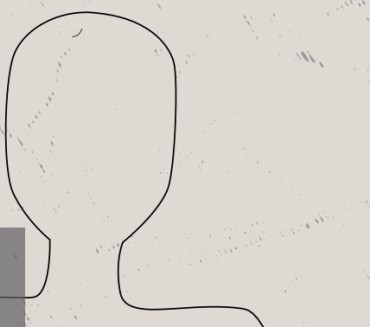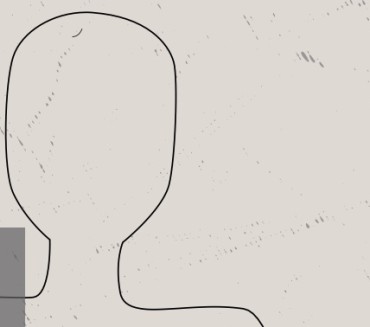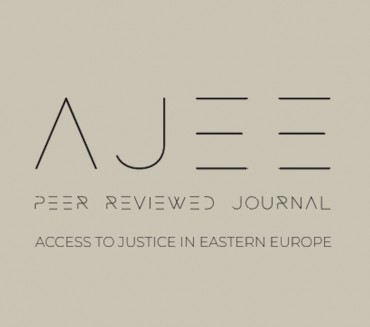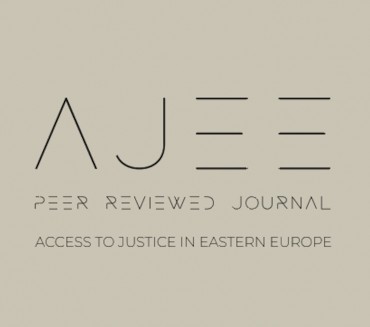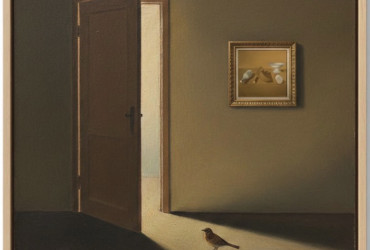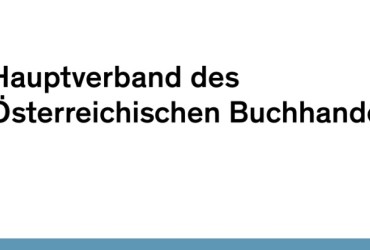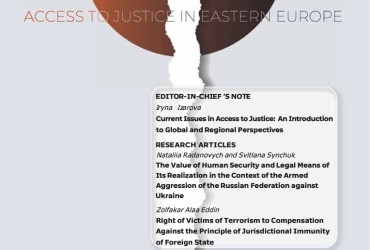ABOUT ISSUE 3/2022 AND
RESEARCHING AMID THE WAR IN UKRAINE
This issue appears after six months of war in Ukraine. Every day of this unjustified war, people die fighting for our independence and freedom, for the rule of law and human rights. The only thing we can do as scholars is to continue our research, disprove false ideas and support the truth, and develop institutions and mechanisms for the protection of rights. Justice must prevail without any grounds for exclusion, and scholars should contribute to this goal.
The AJEE Gateway ‘Access to Justice Amid War’ helps to share quality research results in a timely manner. As a founder of this initiative, I believe it contributes to continuing and developing the latest research in the area of law in wartime. In this issue, we collected ten notes related to legal developments in wartime. I am particularly glad to see an article from a Syrian scholar in our journal, with a particular focus on the idea of military operations against a sovereign state. I want to draw special attention to this essay, in which Maya Khater discovered and argued for the absence of any justified grounds legalising the russian war[1] against Ukraine, with particular attention to the efforts of the United Nations and the International Community toward ceasing this aggression. It is clear from this article and others that we must keep collecting evidence and arguments for the coming years and the next generation. The article also witnesses to the meaning of this initiative for the rest of the world – war is not only taking place in Ukraine, and we have to draw attention to all of these conflicts and hear voices from every country touched by conflict.
Law is one of the oldest institutions in human history and one of the most well-known. For example, most people in the developed world know about the phenomenon of Roman Law. Since the emergence of that legal system, the key areas of law, like civil law, property law, and contract law, have not undergone substantial changes, providing society with stability and clarity. Nevertheless, today, we are faced with a challenge to the very idea and essence of law. As a result of the world wars, society is divided into people united with the idea of the rule of law and human rights and those who prefer to consider law only a justification for their actions.
Conflicts are inevitable – they are the driving force of human evolution. But the behaviour of parties, the types of conflicts, and the consequences are very different. Law is generally considered to consist of beneficial rules for parties to follow, but these parties often use the law in different ways for their own benefit. Accusations of violations of international law have been raised by one party of the conflict, and accusations of limitation and discrimination by the other.
During wartime, these rules no longer work, and the very idea of law must be rethought and reconsidered. This often leads to an increase of mistrust in legal institutions and state bodies and general disappointment in the process of fairness and justice. The war on law forces us to think about what is fair and what is unfair; it gives society and lawyers a chance to rethink the essence of law. And in this situation, silence is not an option.
Legal rules can sometimes provide people with ways of justifying illegal behaviour, misunderstanding and mistrusting the law. These are very practical problems, and we cannot consider them from a purely theoretical standpoint – we have the opportunity to undertake studies based on interviews, surveys, and other types of feedback and to include the experiences of ordinary people. What do people consider just and fair during a war, and why? How might it affect our everyday life today and in a post-war society? Policymakers cannot force people to follow the rules. Society gives life to legal norms and has done so since the days of the Twelve Tables. If the law is to continue to function, we must monitor how society interacts with it and react accordingly. The data we collect will help us rethink the traditional concepts of justice, a fair trial, and the essence of the rule of law.
Since wars are an unfortunate constant of human history, a balanced approach to the definition of law and mechanisms for preventing its violation and conflicts is necessary. The main goal of this approach should be the limitation and diminution of these conflicts, as well as the minimisation of the consequences and resources for their resolution.
With this in mind, the focus of our research project ‘Access to Justice Amid War’ will be to promote the voices and reflections of ordinary people suffering from war and convey their expectations about justice in cooperation with leading law scholars, sociologists, and economists tasked with finding ways to rethink justice based on the challenges of the wartime experiences and directed towards the sustainable development of the post-war period. Justice should prevail – this is the most important thing, and is a strong base for rebuilding peace. The restoration of Ukraine should be the next important goal for our research focus.
The AJEE Gateway ‘Access to Justice Amid War’ allows us to collect data and reports from various areas of law, covering the main types of illegal behaviour and people’s expectations regarding legal remedies. We believe that our authors will also focus their attention on the particular issues of the further restoration of Ukraine.
The first notes from this initial research gateway have been published as Online First Articles during these months and are included in this issue.
On behalf of our team, I thank all the authors who joined us and answered the call for materials related to the war in Ukraine. For the following issues, we are also seeking research on further legal reform in the period of the restoration of Ukraine after the war.
Slava Ukraini!
Editor-in-Chief
Prof. Iryna Izarova
Law School, Taras Shevchenko National University of Kyiv,
Ukraine
1] According to standard grammatical rules, titles of states, cities, etc. are capitalised as proper nouns to indicate respect and show importance. Due to the war in Ukraine, we refrain from granting the aggressor state this capital letter, subject to each author’s discretion. Keeping in mind that the state is not a res incorporales, we intend to spread this to the citizens and nation (as stated in the constitution, Art. 1).















